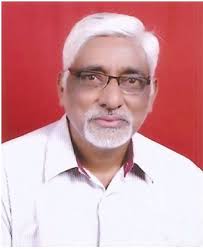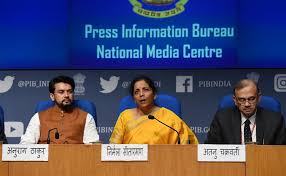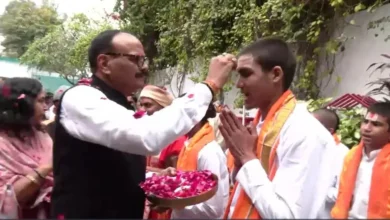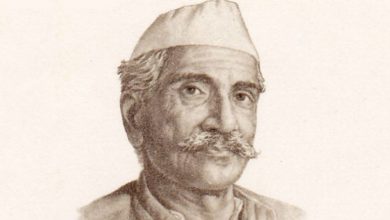Budget : Hopes ,Frowns and Smiles
Presenting a budget that ensures growth and pleases all segments of society is always a tough exercise. It was a much tougher exercise this time. The economy which as such was suffering from a sluggish growth in post demonetization years was severely hit by Corona pandemic which lead to a global slowdown and local lockdown . No doubt the budget for the year 2021- 22 was presented in most difficult circumstances. Though it has missing links and doubtful prescription to heal the wounds of the economy, in the given circumstances Finance Minister Nirmala Sitaraman has not done a bad job. Therefore it would not be proper to term it as a good or bad budget
The biggest challenge the government faces at present is to revive the economy and bring it to pre-Corona period. In fact the economy is now caught in a vicious circle of low finance, low production and low demand. The Finance Minister has attempted to break this vicious circle in her budget exercise. The poor demand and low production has led to unemployment which in turn has depressed the demand. To meet this challenge the Finance Minister has very rightly allocated a big outlay for infrastructure development . While this is expected to restart the wheels of production in core sectors like steel and cement , generate employment and increase the market demand it will also lead to deficit financing –something which is perhaps unavoidable in the present circumstances. With some financial discipline if deficit financing can be kept in manageable limits than the we may as well expect the econowomy to come out of the present crisis. However, committed to sell off all public assets this government does not understand that public sector understandings, if properly run , can generate a lot of money to meet the financial crunch. The public sector has been badly managed because of apathy or by design and then has been sold out to private parties. Instead of raising money by large scale disinvestment of public assets, efforts should have been to raise resources through it . It is difficult to understand that how can cash rich LIC face financial difficulties unless unseen forces are sabotaging it from within.
What impact the Finance Minister’s budgetary provisions will have on the economic scenario at the ground level will be known only in the due course. However, it can be said with a degree of certainty that while the budget provisions have attempted to benefit to the low income groups they have sorely disappointed the middle class. The well- off sections of society have of course been dealt with a kid glove in keeping with the pro= rich character of this government .The agriculture sector has expectedly been given some concessions to take the wind out of the sails of the present farmers’ movement and election-bound states have been favoured for obvious reasons.
The Rs 35,000 crore allocation was necessary and the increased outlay for health is welcome. But what is really needed is a free health care scheme for the economically weaker sections of society and setting up of clinics and hospital where they can get treatment without being fleeced by the pharmaceutical lobby , insurance mafia and their agents in medical profession. Perhaps no other time could have been more appropriate than the present one to overhaul the health care system in the country. Like one nation one ration card the government may also consider one nation one health card in the interests of the poor sections of our society.
Along with health , education is basic to building a strong foundation of a society. However, education has never been an overriding priority of BJP governments. This budget also does not reflect any big concern for it. Setting up an education commission and sainik schools is hardly sufficient for education in a country where nearly 20 crore students were totally deprived of any education in the lockdown period as they had no access to digital devices for on–line education. The fact that there is the need to do much more for the education sector cannot be overemphasized.
While a higher degree of deficit financing was difficult to avoid the Finance Minister should have been more careful to avoid any inflationary trend. Unfortunately not much attention has been paid to this. The agriculture cess on diesel and petrol will have an adverse impact on the price level because of rise in freight rates which will make essential commodities dearer.
It will not be fair to criticize the Finance Minister for not giving any concessions to our much pampered middle classes. For one they did not suffer in the Corona lockdown as badly as the low income groups, especially industrial workers, daily wage earners and vendors suffered. In fact some of them substantial gains by saving on transport, conspicuous consumption and social obligations Therefore, in this post lockdown recovery period it will not be a crime if they are asked to keep their self interest in abeyance till things improve.
If our middle class, which shares the major burden of running the system is supposed to make some sacrifice ,the natural question is what the rich and super rich sections of society ,whose assets have substantially grown up in the past few years ,doing for the economic recovery of the country . The corporate sector has got huge tax concessions and loan waivers in the past two years and it is time for it to come forward when the country is passing through tough times. However,neither the Finance Minister has demanded any matching sacrifice from the rich sector nor have they offered .
Perhaps sacrifice is an old-fashioned term and in this era of globalization we should not expect it from anyone.
Prof. Pradeep Mathur , Senior journalist , Delhi

———





